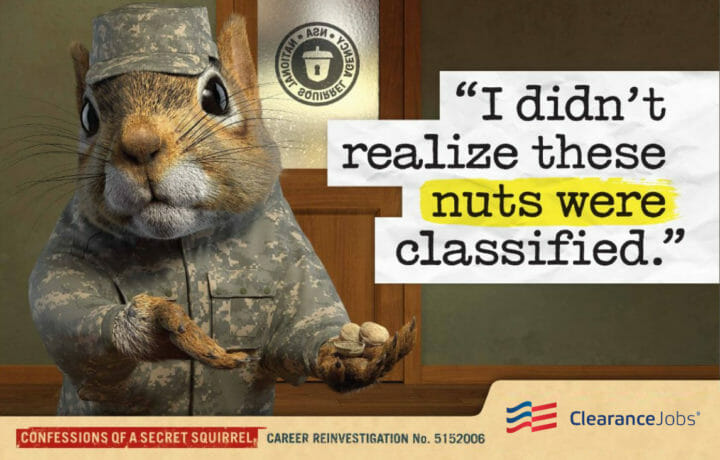Much has been discussed about control of classified information. This is of course the basic, foundational theme of why we hold clearances. Without an understanding of this rudimentary concept, we cannot do our jobs. We are trusted to protect information from compromise. We must learn how to control it under different circumstances.
When you are hired for a cleared position, you have to first learn where the classified information is stored if you are going to protect it. This means knowing which computers can be accessed to use it, which safes contain it, and what procedures must we perform to access either of them. Let’s assume for the moment that we aren’t discussing a classified physical item. This requires a whole different set of rules.
Are we working in an ‘open storage’ facility? This means, can we keep the classified documents on our desk when we leave for the night? Odds are, such open storage areas are only in Sensitive Compartmented Information (SCI) areas. And even then, only SCI cleared people are allowed access to those areas. This means if you leave a document out, there are procedures in place for locking the secured facility. Further, there are controls over what you can do once you access the documents. You cannot, for instance, use a USB to copy documents, of any kind. You can’t even bring such devices into the cleared area. Further, you cannot bring in cell phones. They can be compromised, thus compromising the cleared area. Outside every cleared facility you’ll find little arrays of cubby holes, like in a hotel, where phones are kept while the cleared person goes inside. With so many new means of collecting information, some facilities control anything that is carried in. Pens, electronic reminders, even electronic cards are controlled.
Upon changing jobs, you must either give up access to all the classified you worked on. There are special procedures for so doing. Check with your facility security officer or SCI facility chief. Most can remain online. If you must physically deliver something, use the appropriate agencies to do so. Transferring documents overseas is a wholly different procedure. All of these means of moving documents require specialized handling. All of these movements are labor intensive, and should be properly processed according to standardized procedures. Ask for guidance.
There are no excuses for classified information simply appearing at your private address or business. You cannot access this type information, nor move it, without proper instruction and execution, complete with identifying documentation. The government has provided a host of guidelines, online and through your supporting security officers, for so doing. This is mandatory. No one is exempt from doing this. Indeed, declassification is a procedural process as well. Say for instance I want to discuss a classified project in a book I’d like to write. I cannot do so on my own. I have to painstakingly verify that everything in a book, even one where I did not consult directly classified documents, is cleared. Clearance is gained by direct contact and submission of such documents to the Public Affairs Officer of every agency referenced. Thus, if I want to tell a personal story about the espionage of a spy, I have to get authorization from the service the man was in, and the investigative agency which brought him to justice.
Let’s take an example. In our country, a document is considered classified until declassified by a formal procedure. Recent policy has stated certain categories of classified are automatically declassified after 25 years. Not all. This is why going through official channels to get a document cleared for publication is mandatory. You can’t take classified documents home and refer to them, and there’s no excuse for ‘not knowing’. This is one of the areas briefed every year during security awareness training. If you’ve followed the appropriate channels to get something declassified, then cleared what you want to write privately through official channels, then you’ll be all right when it comes to anyone challenging your work. The same applies for items you want to preserve from your time in the service. A formerly classified item must be clearly marked declassified, and dated by an official authorized to do so.
Be sure all your cleared employees know this. It will spare your command or company so much woe later on.




